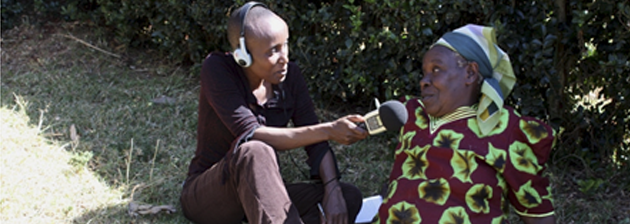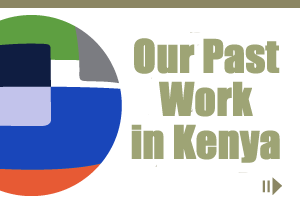The women in Central province are in charge. This we learnt by following a lead from the Kenya Demographic Health Survey (KDHS) that shows Central Province to be ahead of all other provinces in the uptake of family planning services. While the government targets a 56 percent nationwide uptake by 2015, Central Province is already at 63 percent. According to population and development stakeholders this is a trend that should be emulated If Kenya is to catch up on the Millennium Development Goals and also achieve its vision 2030.
“While some leaders may view declining birthrates as a bad thing, the bigger picture is that by this we are able to achieve positive development. What is the point of leading many people that you cannot provide basic resources for?” Dr George Gatiri, Director Ministry Of Public Health and Sanitation (MOPHS), Central Province
During an Internews workshop on family planning and reproductive health in Nyeri, Internews sought to follow up on some matters regarding fertility in the region. We were also looking in to factors that boost or challenge family planning and reproductive health uptake in central province. The workshop participants wanted to find out from community members themselves what made them plan their families well.
It emerged that family planning and reproductive health are hugely influenced by religion.
“This influence can be described as both constructive and destructive”, says Internews trainer Dolphine Emali. While Central Province is predominantly Christian, some residents also subscribe to Islam and locally founded religion. The Presbyterian and Anglican churches are known to advocate for smaller manageable families urging their congregations to plan well. Catholic, Muslims, Akorino and Agikuyu belief systems are against modern contraceptives, but they advocate for traditional methods of family planning.
The challenge for women in these groups is that customary methods of family planning only work if they are supported by their partners, which isn’t always the case. Experts say it’s not very efficient for women with irregular menstrual circles. And some illiterate couples struggle with counting the “safe and unsafe” days. Now some women in this region use modern contraceptives despite the wrath of being discovered by their spouses or their fellow congregants. They say it is after all they who suffer with limited resources when they have big families.
“I live in the slum. My husband and I have poor paying jobs. Even though Islam doesn’t permit use of contraceptives, I realized that we couldn’t sustain a big family on what we were making so I went for it”, says Habiba Mickdad, a Nyeri resident Habiba’s husband married a second wife after finding out she was using contraceptives despite his refusal.
Experts also told trainees that education plays a key role in the uptake of family planning services in Central Province.
It ranks as the province with the second best literacy rates, according to the Kenya Demographic Health Survey. More educated women tend to have their first child at a later age.
It also emerged that maternal deaths and child mortality have been effectively reduced in Central Province. This has been through a number of interventions, including improved family planning services access, upgraded reproductive health facilities, intensive education of the benefits of all these services and re- educating service providers. But more needs to be done to warn women about the dangers of the emergency pill (E-PILL). Community members and specialists told the trainees they were concerned about its abuse by young people.
“Every weekend girls buy the emergency pills and carry them as they go to visit with their boyfriends. They are more scared of getting pregnant.” Ann Mwangi, student
Alcoholism was noted as not being linked with low birth rates as initially claimed through previous media stories. In fact in homes where alcoholism was experienced, the families were bigger mostly due high poverty levels that limited access to knowledge and services for the women.
In the next weeks, Internews trainee journalists will be working on stories on the above themes.




